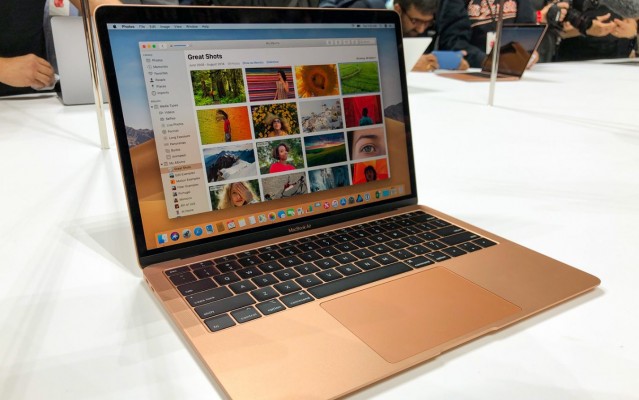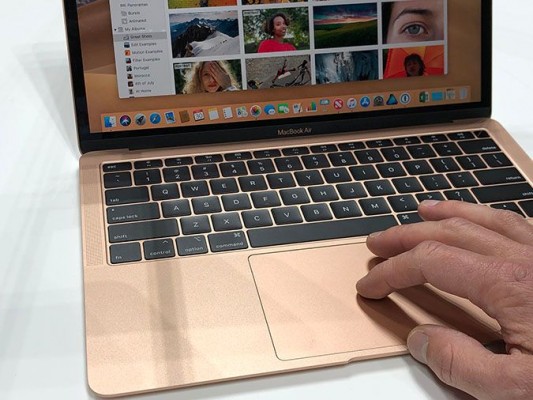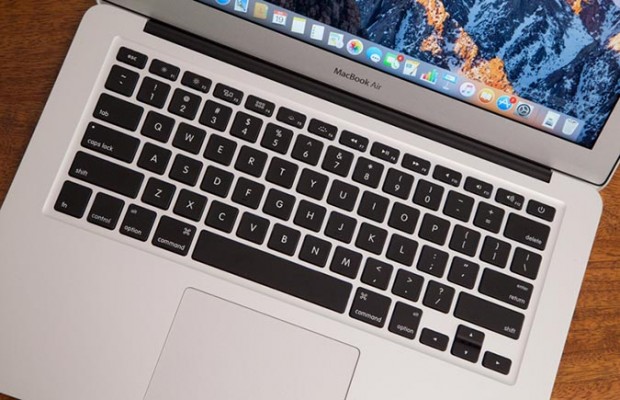The New MacBook Air Has a Looming Reliability Issue
As Tim Cook announced a new MacBook Air with a Retina Display this past Tuesday (Oct. 30) my co-workers saw a giant, widening grin fill my face, as the most-loved MacBook got the display many had been begging Apple to add. That smile dropped off my face, though, when the Apple CEO started talking about how the MacBook Air's got a butterfly-switch keyboard, and I almost cursed in disgust.
Sure, that's probably an overreaction to a laptop keyboard, especially one that Apple uses in every other modern MacBook. But my frustration is rooted in an unsettling belief: Apple doesn't understand one of the key reasons behind the MacBook Air's popularity.
Cook referred to the MacBook Air's iconic, often imitated design, which is definitely one of its strong suits, but it's not enough. With each MacBook Air owner I talk to — I've got more than a few in the family — I keep hearing them mention another reason: its reliability.
The MacBook Air is held in high regard for being a well-built laptop that lasts forever. And since the Air has lasted so long, many users (including most of my relatives) have held onto their older models. These systems still work, but they’re finally starting to show their age, leaving their owners looking for a new laptop.
Unfortunately, Apple's butterfly-switch keyboards have a troubled history of failure — littered with users shooting compressed air at stuck, unresponsive keys. There have even been a couple of class-action lawsuits (1, 2).
Note that Apple is working on its keyboards, and has copped to previous issues. In fact, Apple announced a new keyboard service program for replacing failing keys, though that program doesn't cover any of the 2018 MacBook Pros and 2018 MacBook Airs.
MORE: MacBook Air 2018 Hands-on: All the Right Upgrades, But Pricey
Sign up to receive The Snapshot, a free special dispatch from Laptop Mag, in your inbox.
Apple's been decidedly mum on the reliability of its 2018 MacBook keyboards. From what we've seen, though, Apple is trying to fix the situation: leaked documents explain how the 3rd-gen keys have a membrane layer (the existence of which was confirmed in an iFixit teardown) under the keys would protect the switches from debris. But flaws, apparently, still linger.
This thread on the Apple's Discussion forum finds a 2018 MacBook Pro owner named "01guest" saying "certain part [sic] of the keyboard stopped working" a mere two days after buying the laptop. That user would then go to the Apple Store for free but then hit keyboard issues — in the same exact area — on the second model they got.
It took only two months for Apple Discussions forum user piotr124 to have issues with their 2018 MacBook Pro. This situation is plenty tough for piotr124, who had to ship their new laptop to Apple from their home in Poland and wait a whole two weeks to get a new one.
That's just the stuff you'll find on Apple's own discussions. Casey Johnston of The Outline has diligently documented the still-failing 2018 MacBook Pro keyboard, in a post entitled "The new and improved MacBook keyboards have the same old problems." In it, she cites a number of posts made on Twitter and the MacRumors forums, with similar issues as those quoted above.
This is why I look forward to typing on the MacBook Air's keyboard for as much time as I can. Its shallow key travel may take some time to get used to (Laptop's Multimedia Producer Nick Bush says he got used to them on the MacBook Pro), but I need to see for myself how much I should trust this new MacBook.
If I'm going to spend $1,199 on a new laptop — which is $200 more expensive than similarly configured Windows machines — I should have complete confidence in my premium-level investment. And right now, I don't.
If the MacBook Air is as reliable as I want it to be, I'll find a way to mentally excuse its high price. But if the new Air’s keyboard is truly identical to the MacBook Pro's, it may not be my type.
Credit: Laptop Mag
Henry was a contributing writer at Laptop Mag. He penned hundreds of articles, including helpful how-tos for Windows, Mac, and Gmail. Henry has also written about some of the best Chromebooks, and he has reviewed many Apple devices, including various MacBook Air laptops. He is now a managing editor at our sister site Tom's Guide, covering streaming media, laptops, and all things Apple.



